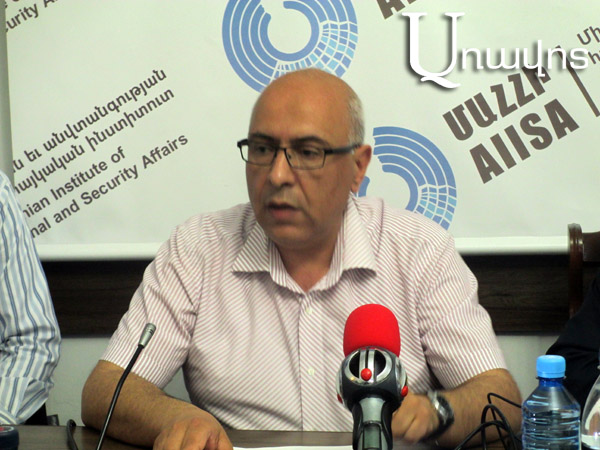On May 13, the Armenian Institute for International and Security Affairs had organized a round table of exerts entitled “Armenia, 4 Months in Eurasian Union: In a Recession and In Anticipation of Collapse?” The speakers of the round table discussion were Dr. Ashot Yeghiazaryan and political analyst Ruben Mehrabyan. Ashot Yeghiazaryan said in his speech that the Eurasian Economic Union is a project, with which Russia is willing to resume integration processes in the after the collapse of the post-Soviet region after the collapse of the Soviet Union. “But all the projects failed to be successful and we believe that this next attempt has failed in Astana. After the events in Ukraine, when the West imposed sanctions against Russia as an aggressor, it became clear that Ukraine will not be included in this Eurasian project.”
The economist believes that without the Ukrainian scientific-technological industrial resources, Russia is unable solely to unite the post-Soviet countries around it. In his opinion, these events have led to the fact that Belarus and Kazakhstan having expressed willingness to join the Union have realized that this integration Union has no future. “Russia had to change its stance and plans. Russia actually tried to formally speed up the establishment of the Eurasian Economic Union, in other words, still not switching from the Customs Union to a common market, the establishment of the Eurasian Economic Union launched. Russia draws the notion of creating one single state.”
According to Ashot Yeghiazaryan, the Astana meeting showed that the Eurasian Economic Union does not exist because it is a level of economic integration, which implies a common policy in a number of spheres. “All of this does not exist, all of that remained out of the agreement. Including, the provisions pertaining to the normalization of such key issues as the common citizenship, foreign and military-technical policy, common maintenance of the borders, the idea of a common parliament, common passport regime and other items that deprived this agreement of specific characterization of the economic union.”
Ami CHICHAKYAN

























































